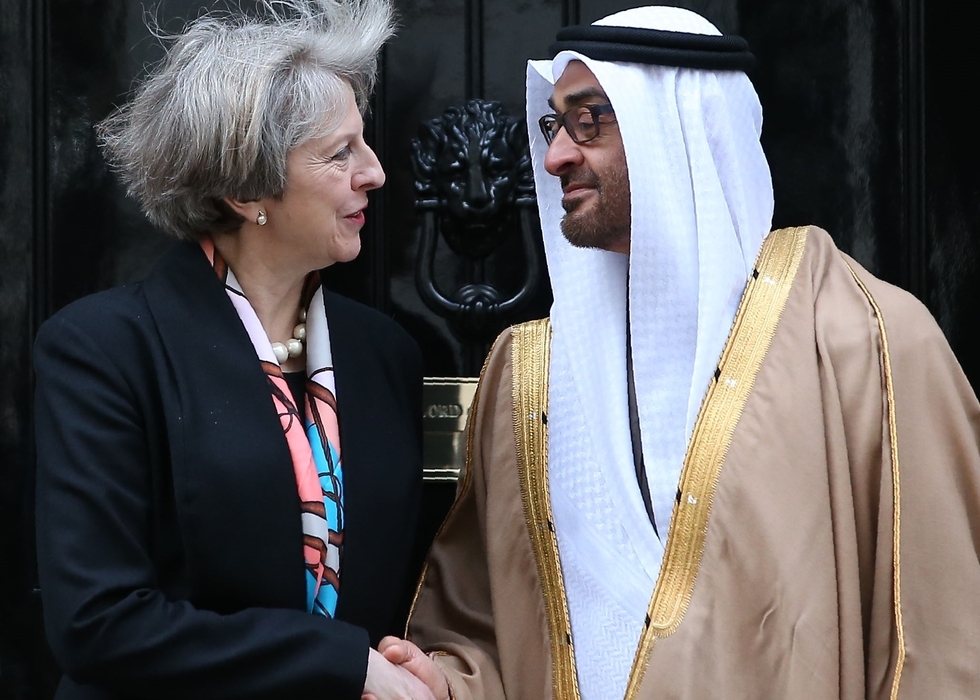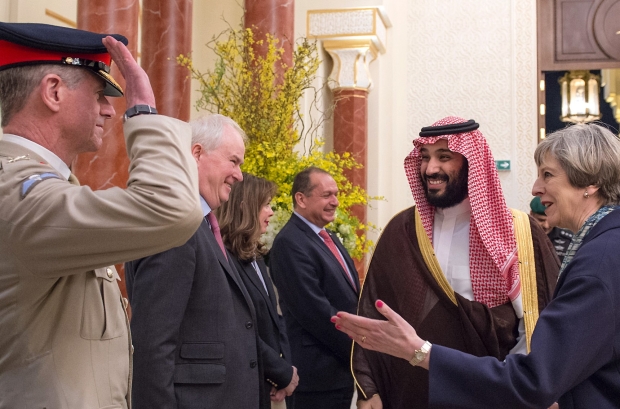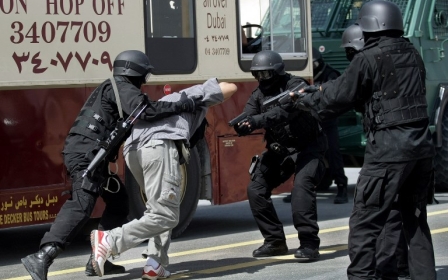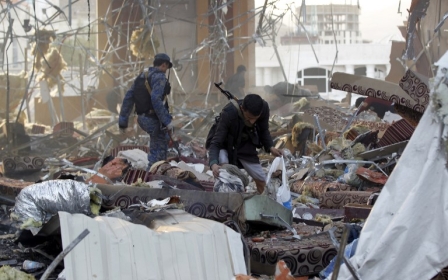Britain should take inspiration from Norway's principled stance on the UAE

The Norwegian Ministry of Foreign Affairs recently announced it has suspended sales of arms and ammunition to the United Arab Emirates. The ministry had expressed concern that these arms could be used in Yemen resulting in an intensification of the humanitarian crisis that has engulfed the country since the outbreak of the war in 2015.
According to the UN, which has been investigating war crimes in Yemen following pressure from rights groups, this crisis has claimed over 10,000 lives and has led to an epidemic of cholera, placing seven million people on the brink of famine in one of the poorest countries in the region.
A principled stance
This action by Norway constitutes one of the most principled stances yet taken by a European country with regards to the war in Yemen and one of its key participants, the UAE.
Norway has been selling arms and ammunition to the UAE since 2010 and according to Statistics Norway, Norwegian weapon exports to the UAE almost doubled from $5.1m in 2015 to $9.9m in 2016.
The decision of the Norwegian government to suspend arms sales to the UAE is a cause for celebration for human rights campaigners everywhere
There has, however, so far been no signal that the British government is set to follow suit. Alongside France and the US, the UK has been one of the principal exporters of arms to the Gulf region.
Since the bombing began in March 2015, the British government has licensed over £4.6bn ($6.3bn) worth of arms to Saudi Arabia and over £350m ($483.8m) to the UAE, fuelling a conflict that has so far, according to UN estimates, killed or injured over 3,500 children and led to the internal displacement of over three million people.
Though the High Court threw out the case, it placed an unwelcome spotlight on the UK's increasingly close relationship with Saudi Arabia.
'An arms' dealer's Brexit'
It is no secret that with Brexit on the horizon, the UK's relationship with the Gulf has grown in importance. One of the first opportunities Theresa May has seized to plug the trade deficit gap has been the strengthening of the relationship with the Arabian peninsula, with states across the Gulf Cooperation Council offering "signature-ready" deals on the table, just as soon as the UK leaves the EU in March 2019.
The subsequent £30bn ($41.5bn) post-Brexit trade deal that was lined up on May's visit to the Gulf last year is a clear indication that the already heavily subsidised UK arms sector is set to receive a significant boost in the post-Brexit UK economy.
The more a state relies on its arms sector to form a key component of GDP growth, the more subordinated it becomes to this PR role where human rights abuses are airbrushed from the picture
It is this vision of "an arms dealer's Brexit" that currently holds sway within the halls of Westminster. Rather than addressing the deep structural problems in the UK economy in relation to stagnant GDP growth and low productivity, the UK export economy will become increasingly reliant on the much outsourced and capital-intensive arms sector.
It is within this context that one should understand the comments made by the former defence secretary, Michael Fallon, last year in which he bemoaned criticisms of Saudi Arabia's human rights record as "unhelpful" to UK arms sales.
The more a state relies on its arms sector to form a key component of GDP growth, the more subordinated it becomes to this PR role where human rights abuses are airbrushed from the picture.
It is, however, this lack of public scrutiny that the UK's continued relationship with the UAE relies upon and it is why Norway's recent announcement will no doubt anger a number of British ministers who would like to keep it that way.
Veneer of modernity
In recent years, the Emirati authorities have consciously reconstituted and marketed the UAE as a sort of consumer brand in the UK. For football fans, the term "The Emirates" is now inextricably linked to the sponsorship of Arsenal Football Club.
For holidaymakers, the UAE is the luxury and grandeur of Dubai's golden sandy beaches and five-star hotels. Few in Britain would associate it with the locking up of human rights activists or with war crimes and torture.
On digging a little deeper, one begins to identify a hazy network of relations between UK corporations, the British state and UAE security forces
Scratch beneath the veneer of modernity on display at the Louvre Abu Dhabi or dizzying skyscrapers of Dubai, and one finds a tightly controlled police state that now has one of the highest rates of political prisoners per capita anywhere in the world.
A report released last week by the Office of the United Nations High Commissioner for Human Rights (OHCHR) slammed the UAE authorities' recent human rights record, citing a prevalence in practices of arbitrary detention, enforced disappearances and a suppression of freedom of speech in the country.
Moreover, on digging a little deeper, one begins to identify a hazy network of relations between UK corporations, the British state and UAE security forces. This was well illustrated a few months ago when UK minister for the armed forces, Mark Lancaster, refused to provide details of UK military activities in the area.
It is further illustrated by a War on Want report (2016) that identified British involvement with policing, military training and the encouragement of UK companies to provide security and surveillance technologies to the Emirati regime.
In addition to this, last year BAE Systems exported surveillance technology to the UAE that has been used to clamp down heavily on freedom of speech and assembly in the country.
Tools of repression
All this has led to the arrest and detention of scores of people for such minor misdemeanours as a negative tweet or Facebook post. It is important to recognise that UK companies, as well as the British government, have provided the tools for the UAE to repress those within its borders and in this sense they are complicit.
The decision of the Norwegian government to suspend arms sales to the UAE is a cause for celebration for human rights campaigners everywhere.
As a non-EU member, albeit with single market membership, Norway has a solidly diversified economy with one of highest rates of productivity in the world. On leaving the European Union, Britain should look to follow Norway's model.
Instead of plugging the Brexit trade deficit by boosting arms sales to regimes around the world with appalling human rights records, Britain should seek to diversify its productive base around the high-tech industries of tomorrow, developing an export economy that enriches the world rather than helping to plunge it further into barbarism.
- Joe Odell is press officer for the International Campaign for Freedom in the UAE. He has an MA in Middle East Politics from the School of Oriental and African Studies.
The views expressed in this article belong to the author and do not necessarily reflect the editorial policy of Middle East Eye.
Photo: British Prime Minister Theresa May (L) shakes hands with Crown Prince of Abu Dhabi Mohammed Bin Zayed Al Nahyan at 10 Downing Street in central London on 23 February 2017 (AFP)
Stay informed with MEE's newsletters
Sign up to get the latest alerts, insights and analysis, starting with Turkey Unpacked
Middle East Eye delivers independent and unrivalled coverage and analysis of the Middle East, North Africa and beyond. To learn more about republishing this content and the associated fees, please fill out this form. More about MEE can be found here.







